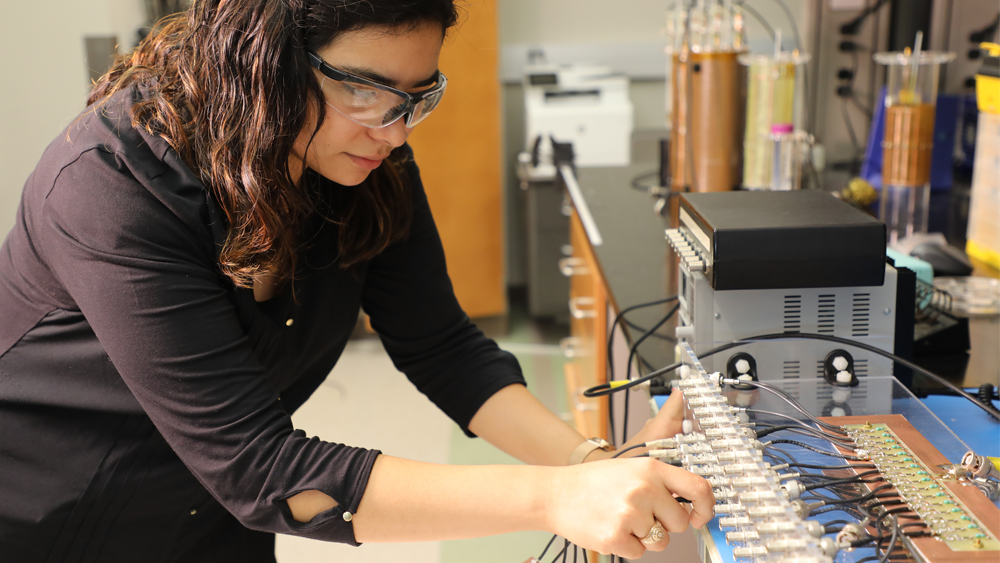
Dr. Romina Del Bosque initially pursued biomedical engineering as an undergraduate student because it combined medicine and engineering. At the time, she planned to pursue a medical degree but found she liked the problem-solving aspects of biomedical engineering more.
That interest continued to her doctoral program. There she continued her research in radiofrequency coil design for magnetic resonance imaging and spectroscopy in Dr. Mary McDougall’s lab. Financial support came from two Texas A&M University fellowships — the National Science Foundation (NSF) Louis Stokes Alliance for Minority Participation Bridge to the Doctorate and the Graduate Diversity Excellence Fellowship.
“Throughout both undergrad and graduate school, I had phenomenal professors and mentors,” Del Bosque said. “The combination of that support and my interest in mentoring and teaching undergraduate researchers in my lab is what led me to pursue a career in academia.”
Del Bosque defended her dissertation in late 2019, started teaching in January 2020 and graduated from Texas A&M in May. She is now on the academic professional track at Vanderbilt University. Along with teaching two courses a semester, she has two service components: developing a mentorship program for underrepresented minority students within the department and designing a program that helps students get internships.
While in Bryan-College Station, Del Bosque was a member of the Texas A&M System Research Model (TxARM), part of The NSF Texas A&M University System Texas Alliance for Graduate Education and the Professoriate. This alliance was created to advance knowledge about models to improve pathways to the professoriate and success of historically underrepresented minority graduate students, postdoctoral fellows and faculty in specific science, technology, engineering and math disciplines.
Del Bosque said TxARM provided a community with a common goal — to pursue a career in academia.
“We have had numerous retreats and Scholarly Learning Community meetings in which we discuss the grant writing process, different teaching strategies, job search, etc.,” Del Bosque said. “All these professional development activities are extremely helpful when transitioning from doctoral student to junior faculty.”
The retreats, which provided community and interactive activities, were beneficial and prepared Del Bosque for the drastic change of moving her focus from research to teaching.
Now working with a different teaching format, Del Bosque said many things have changed, but one thing remains the same — students want to feel supported by professors.
“I still try to find time to interact with the students in smaller groups,” she said. “Last semester, I had a couple of meetings with smaller groups of students to check in on them since they all had such sudden transitions. In the fall, I plan on also meeting with the students in smaller groups to check on their group project progress.
One of her main professional and personal mentors in graduate school was her advisor. One piece of advice that Del Bosque has carried with her is to not doubt herself.
“As a first-generation college student, I often doubted myself and my abilities,” she said. “I plan to mentor undergraduate students, especially those who are in similar situations I was in, to help them understand that they do belong within the department and that hard work can help them accomplish anything they set their mind to regardless of their ‘starting point.’”